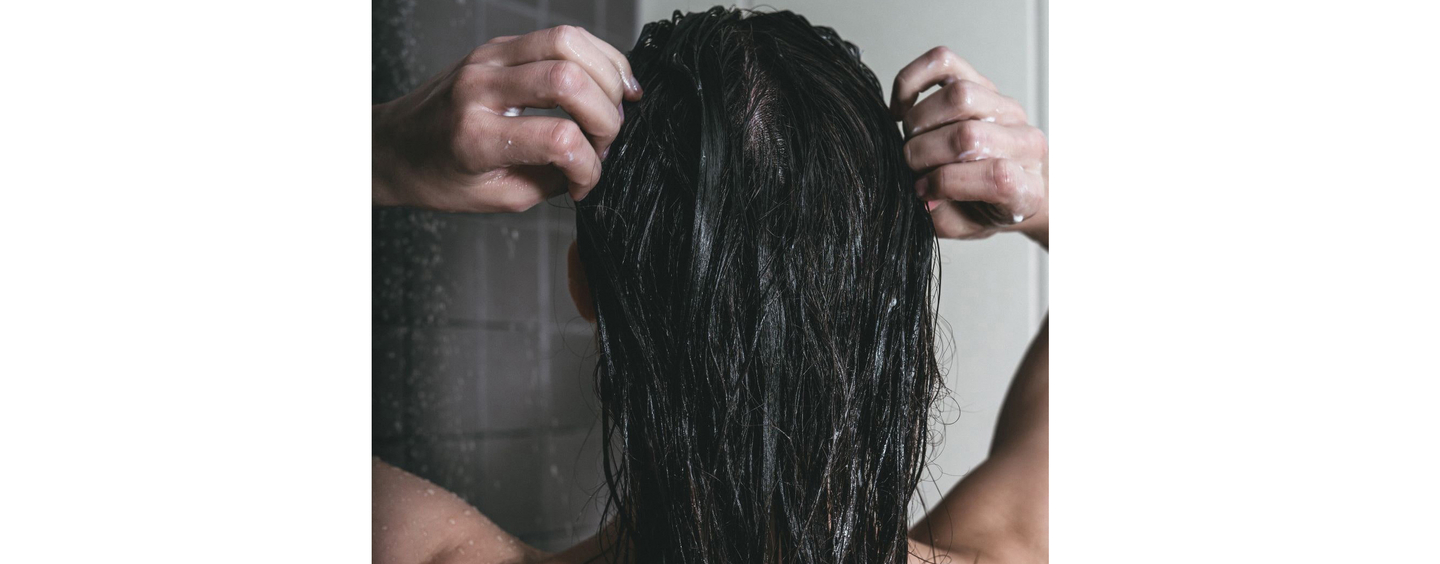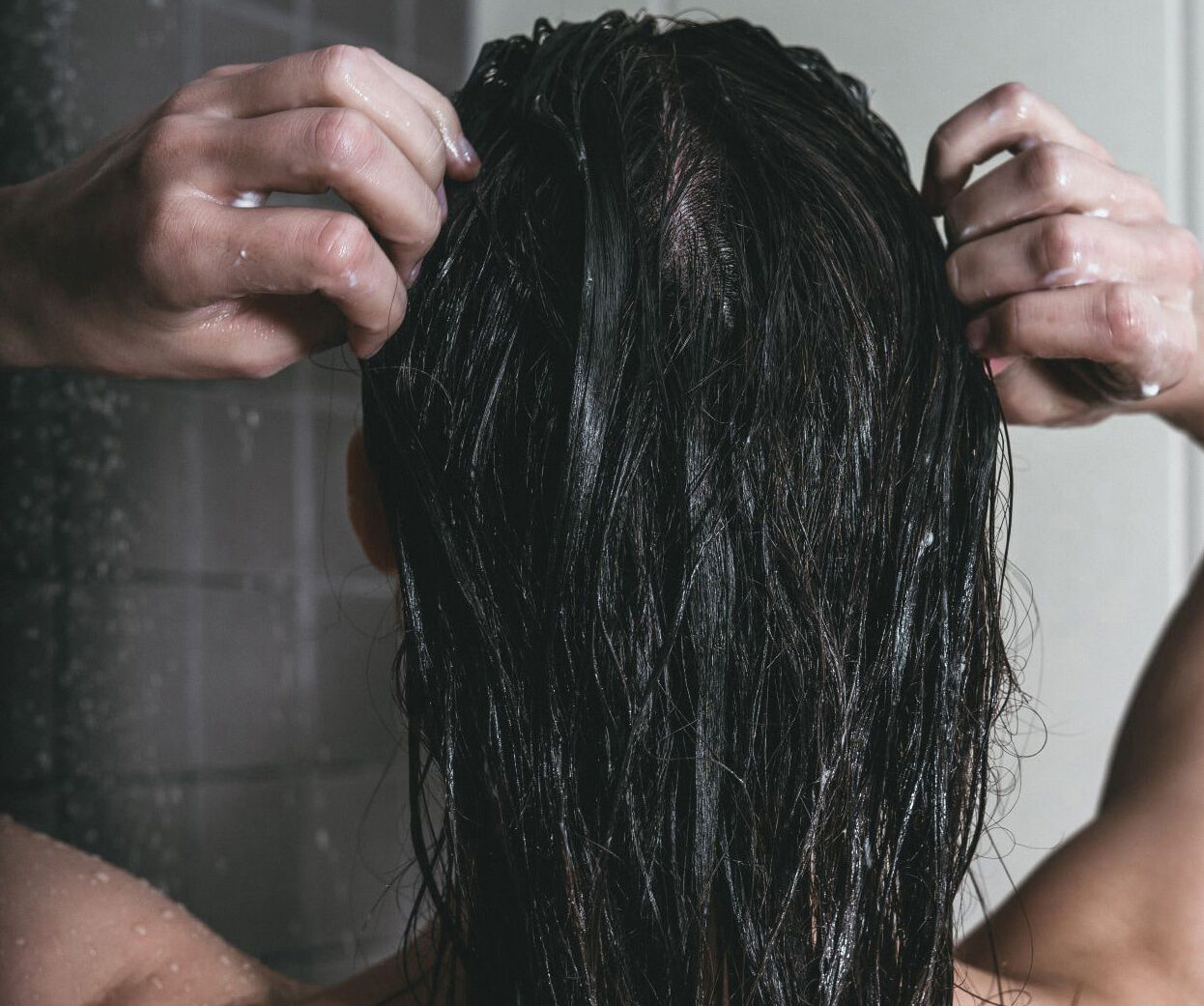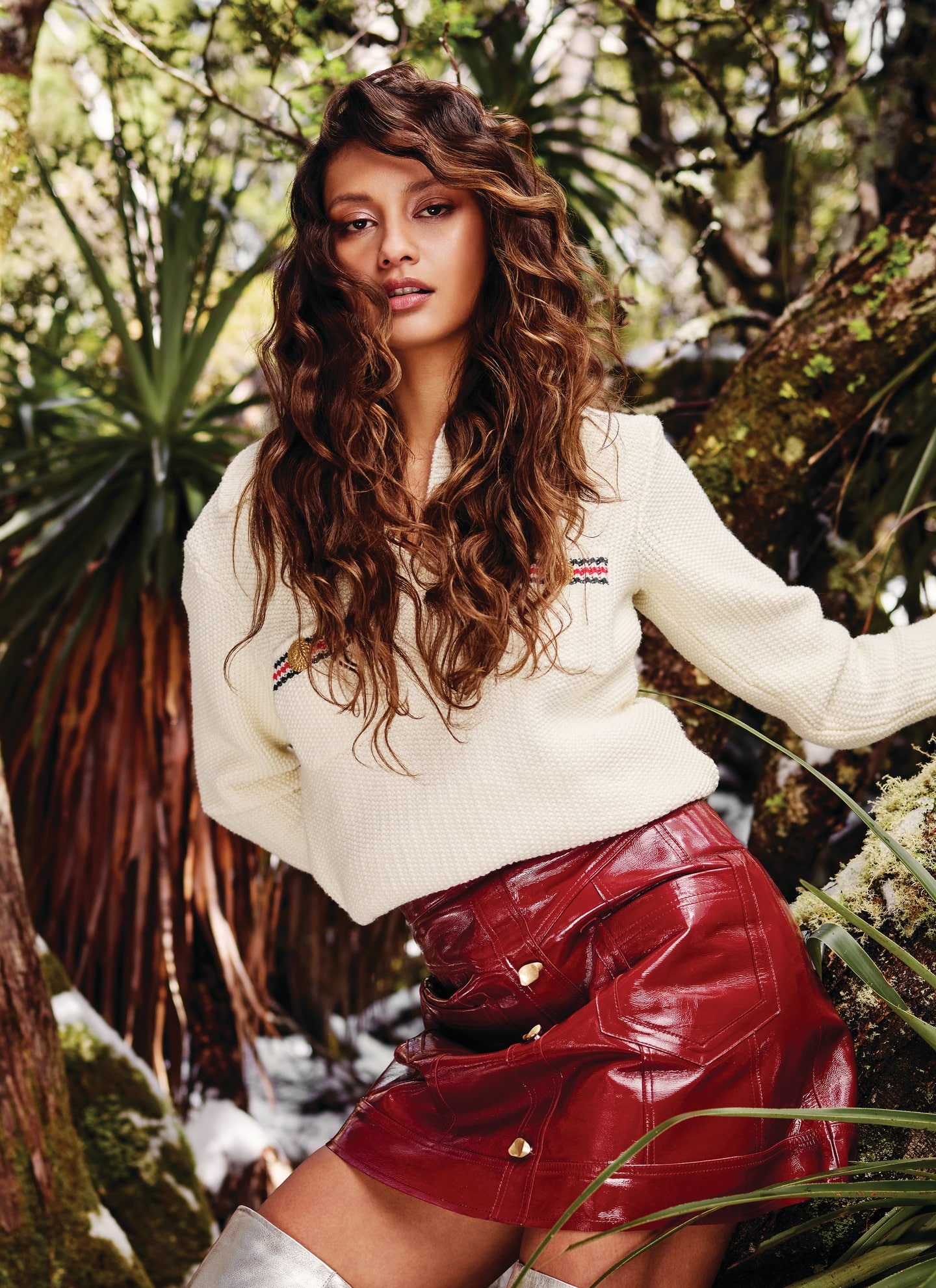How Often To Wash Hair


It could be every day for some or once a week for others — how often you should wash your hair will depend on your hair type plus a variety of individual factors. Everything from age and genetics to texture, density and your lifestyle will determine how often to wash hair. To get a handle on your routine and understand if you’re washing your hair too much or not enough we’re diving into what causes hair to to become greasy, how often to wash your hair based on your hair type, and the top tips to help you shampoo less.
How often should I wash my hair?
There’s a gentle balance to washing your hair enough without over washing it. You might question if it is OK to wash your hair everyday, or if only cleansing once a week could impact your scalp. While there are general guidelines for how often to wash your hair and which products to use, the simple answer is that how often to wash your hair is determined by you.
Do you workout everyday? Does your hair get greasy easily? Do you have dandruff? Do you use products between wash days to extend your style? Do you have a dry scalp? Is your hair fine or natural curly? Do you colour your hair? The characteristics that make up your hair and lifestyle are exactly what determines how often you should wash it.
What happens if I don’t wash my hair enough?
Going too long without a wash can cause excessive oil accumulation on the scalp. The over-secretion of sebaceous glands is a perfect breeding ground for bacteria that can cause various issues, such as folliculitis, dandruff, itching, hair falling, seborrheic eczema, and acne. Buildup on the scalp can also result in a smell, resembling mildew. For this reason, the health of your scalp should always factor in to how often you wash your hair.
And while some might need to cleanse everyday, it doesn’t always mean you need to do with with shampoo. When you cleanse with shampoo, you are removing natural oils from the strands and scalp. So when you think about how often you should wash your hair, you need to also think about how often you should wash your scalp.
For example, if you have excess oil production which causes your hair to get greasy easily, you probably feel the need to shampoo everyday. However, washing your hair with shampoo everyday could cause a dry scalp, leading to issues with flaking, irritation and in some cases hair loss.
On the other hand, if you naturally have a dry scalp and naturally curly or coily hair that performs better when you don’t wash often, you could be risking product or environmental buildup that can also lead to scalp irritation.
This is where the balance between frequency and product choice comes in. If you want to wash your hair everyday, consider using gentle formulas or incorporating co-washing products to suit your style, and always follow with highly moisturising conditioners or leave-in treatments. Or, if you like to wait a week or more between wash days, you could benefit from a deeper cleanse or a hair detox routine.
What happens if I wash my hair too much?
In addition to causing colour to fade prematurely or excess damage from styling, when you over wash the hair you can strip the scalp and your strands of natural oils. This will cause hair to appear dry, become frizzy, feel brittle and some schools of thought believe that over-washing can cause your sebum glands to go into overdrive and overproduce, leading to even greasier hair.
What causes my hair to get dirty and greasy?
In an effort to moisturise and protect your scalp and strands, your body naturally produces oil (a.k.a sebum). How much oil is produced is largely left up to genetics and hair type. While some hair types, like fine hair, can have their hairstyle easily ruined by excess oil, others like highly textured hair benefit from the conditioning qualities. While it’s favourable for some oil to be left behind, oil in excess can lead to greasy hair, irritation and even dandruff.
Common causes of greasy hair:
1. The Environment — Everything from your commute to the weather and air quality can impact your style.
Your Age — Age can play a significant role in determining the state of your hair due to hormones levels and gland activity as these impact how much sebum is created. This is why ageing hair care usually includes a lot of antioxidants and hydration to rejuvenate the scalp and strands.
2. The Products You Use — When it comes to finding the perfect match, your hair products should include the necessary nutrients for your hair type and desired style. For example, using products that are too heavy on fine hair could weigh them down or products that aren’t moisturising enough on curly hair could lead to dry, brittle texture.
3. Routines & Lifestyle Choices — Your lifestyle is responsible for how quickly your hair gets dirty. For example, physical activity makes you sweat more and kickstarts the adrenal glands. Adrenalin raises cortisol levels, which boosts sebum production and in turn sebum accumulation and sweat can make your hair oilier than usual.
4. An Unbalanced Diet — A healthy diet full of a variety of vitamins and minerals is essential for your well-being, plus your hair needs vitamins too! The intake of fatty acids like omega-3 has a positive impact on your nails, hair, and skin strength and shine. While an excess of saturated fats and refined carbohydrates can increase sebum oil production.
Tips for shampooing based on hair type
From the products you choose to the amount of time between washes, your wash day routine should be as unique as your hair type and texture. To give a general guideline, here are a few tips for shampooing your hair based on type and texture.
Fine/Thin/Straight — This hair type tends to look oily/greasy very quickly, which can also impact volume and thickness. If you’re washing your hair everyday, utilise a gentle daily shampoo like BALANCING.WASH. This is ideal combo wash away impurities without stripping the hair and scalp of necessary oils. If volume is what you’re after, cycle in PLUMPING.WASH + RINSE for extra oomph.
Medium/Wavy — You can usually get away with washing your hair every 2-4 days without it impacting your style. When you do wash, always double cleanse and utilise a shampoo and conditioner that is tailored to your texture. HYDRATE-ME.WASH + RINSE is ideal to add moisture and replenish dry, brittle hair while ANGEL.WASH + RINSE can work wonders on coloured hair or when you’re in need of a boost.
Thick/Curly/Coily — Depending on your level of curl, density and type, this hair type can usually go 4-7 days (or more) between washes. When you do wash, a great hair detox like MAXI.WASH can be used for longer intervals or a moisturising, refining system more often like KILLER.CURLS WASH + RINSE to improve condition and enhance natural texture patterns.
What Happens If You Wash Your Hair Too Much?
Washing your hair too much or “overwashing” can also lead to a host of issues. From dry scalp to colour fade and brittle strands. When you wash frequently, you can strip the hair of its natural oils too often and not give your strands the chance to catch up. Because natural oils help lubricate the scalp and moisturise the strands, taking them away too often can lead to dryness and irritation all around. If you do need to wash frequently, switch up the products you are using to a gentler formula or consider working in a few styling products to stretch the time between wash days.
Tips to Shampoo Less
You don’t need to shampoo every time you shower. Instead, you can cut down on wash days while still having a rinse.
1. Try a co-wash. Consider swapping your normal shampoo for a co-wash routine. This consists of using a conditioning wash to rinse the hair instead of a shampoo. For best results, every third wash day, swap your go-to shampoo for RE.STORE. This co-wash is a repairing cleansing treatment that gently cleanses while restoring moisture, strength and elasticity.
2. Invest in dry shampoo + dry conditioner. By extending the time between washes, you can conserve water, extend your blow dry, elongate your colour, and save time. FRESH.HAIR dry shampoo works brilliantly to soak up excess oil and refresh your style while YOUNG.AGAIN DRY CONDITIONER adds moisture and manageability when you need it most.
3. Rethink your scalp routine. If your scalp is unbalanced, it can lead to an over (or under) production of sebum, causing hair to become either oily or dry. To get things back on track, focus on the scalp as part of your regular routine to rebalance. With a targeted SERUM, a nourishing TREATMENT, exfoliating SCRUB and refreshing WASH, the SCALP.SPA system uses Micelles, Celery Seed Extracts, Hyaluronic Acid and Rose Water to set things straight.
The Takeaways
The combination of your individual hair type, lifestyle, diet, and environment will influence how often you should wash your hair. And while there is no universal rule you can apply regarding the frequency of the washes, to craft a healthy routine you should start with determining your hair type and listening to the needs of your scalp and hair. When you do wash, choose targeted products to cleanse and extend the time between shampooing to improve your routine as well as the health of your scalp for best results.
FAQ
How often you should wash your hair depends on your hair type, age, genetics, texture, density, and lifestyle. There's no one-size-fits-all answer; it varies from person to person. Consider your daily activities, scalp condition, hair type, and use of styling products to determine the best routine for you.
Going too long without washing can cause excessive oil accumulation on the scalp, leading to issues like folliculitis, dandruff, itching, hair loss, seborrheic eczema, and acne. Buildup on the scalp can also result in an unpleasant smell.
Over-washing can strip your scalp and hair of natural oils, causing dryness, frizz, brittleness, and potentially making your scalp produce more oil, leading to greasier hair.


